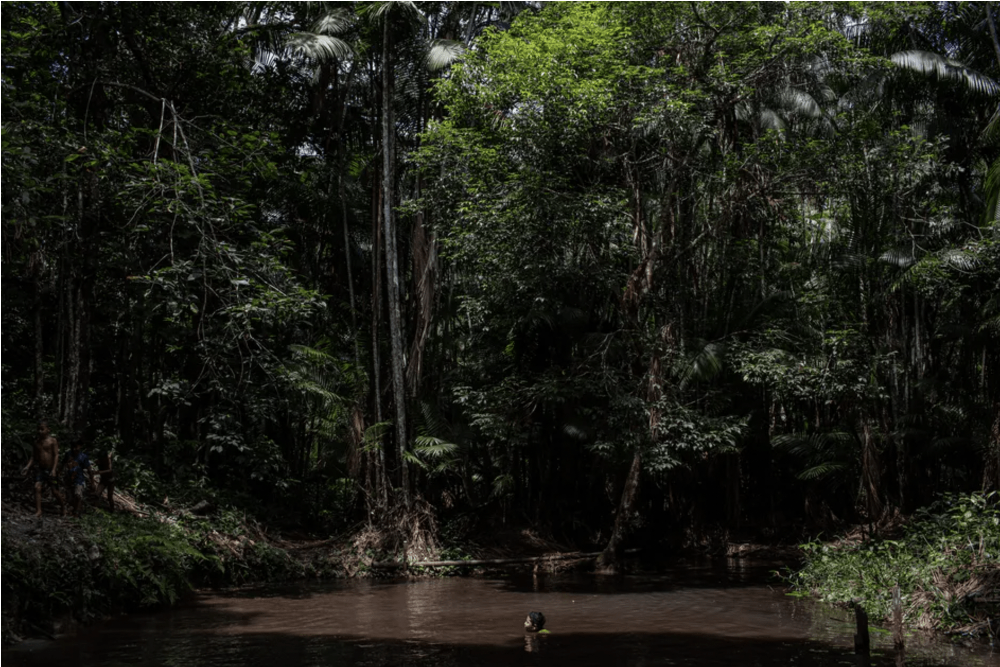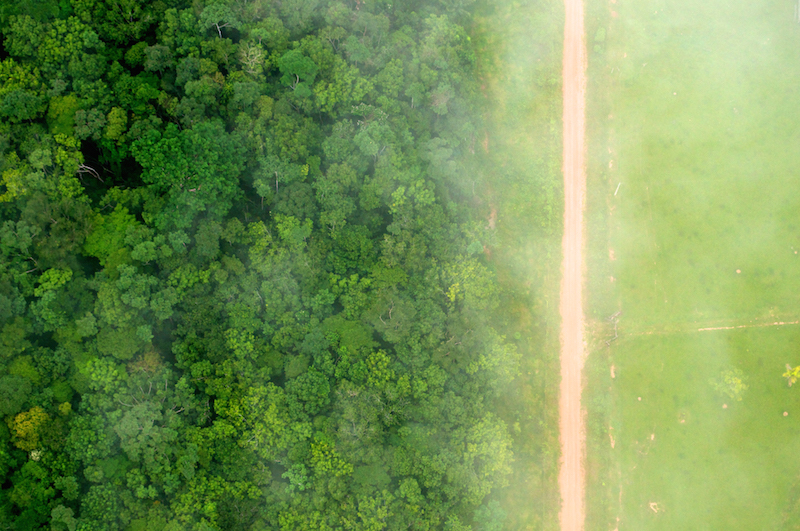
Surprise Findings from Projects with Diálogo Chino and Die Zeit
Two projects out this month paint a man-bites-dog portrait of environmental trends in Brazil, home to the world’s most important—and most threatened—tropical forest.
An in-depth report by Diálogo Chino, by grantees Ning Hui and Sarita Reed, shows that China, which for two decades has been associated with environmentally destructive hydroelectric and mining projects in the Amazon, is now increasingly pressing for greener projects and greater transparency. The article notes startling statistics: While China imports more beef and soy from Brazil than any other country, only 2 percent comes from suppliers linked to illegal deforestation, less than the percentage of suspect beef and soy imported by the European Union.
The EU’s biggest meat producer by far is Germany, as grantee Maria Mast notes in a revealing article for Zeit Online on the studied lack of interest by meat processors and supermarkets in exposing their dependence on feed grains from Brazil that likely come from illegally deforested land. Mast reports that in the last two decades the amount of land in Brazil’s portion of the Amazon devoted to soybean farming has increased more than tenfold despite a Soybean Moratorium in 2006. In Germany itself, regulations meant to ensure transparency for meat consumers are riddled with loopholes and vague promises as to future rainforest-protection goals.
Complex supply chains, opaque regulatory thickets, and insatiable consumer demand make us all complicit in rainforest destruction and degradation—and in the catastrophic consequences of climate change. These topics and more will be explored in-depth at our hybrid climate conference, “Interconnected: Reporting the Climate Crisis,” on June 9-10. The two-day agenda and lineup of 70-plus speakers from over 20 countries are now available on the Pulitzer Center website. I hope you’ll join us! Complete your free registration here.
We’ll be streaming the conference in five different languages (English, French, Portuguese, Spanish, and bahasa Indonesia). We also have limited opportunities to attend the conference in person at the National Press Club in Washington, D.C. Write to [email protected] to determine whether space is available on-site June 9 and 10.

Impact
Rainforest Investigations Network (RIN) Fellow Madeleine Ngeunga participated in last month’s International Forest Policy Meeting (#IFPM4), a biannual event bringing together academics and journalists focusing on global forest issues. Ngeunga’s RIN project for InfoCongo combined mapping and data analysis to investigate legal loopholes that enable land conversion of Congo Basin rainforests into industrial plantations.
“We don’t just focus on field reporting and interview,” Ngeunga told the European Forest Institute’s Resilience Blog in an interview about the convening. “Instead, we combine different tools to have more accurate information, including geolocation data and the Global Forest Watch’s RADD alerts.”
This message first appeared in the May 20, 2022, edition of the Pulitzer Center's weekly newsletter. Subscribe today.



